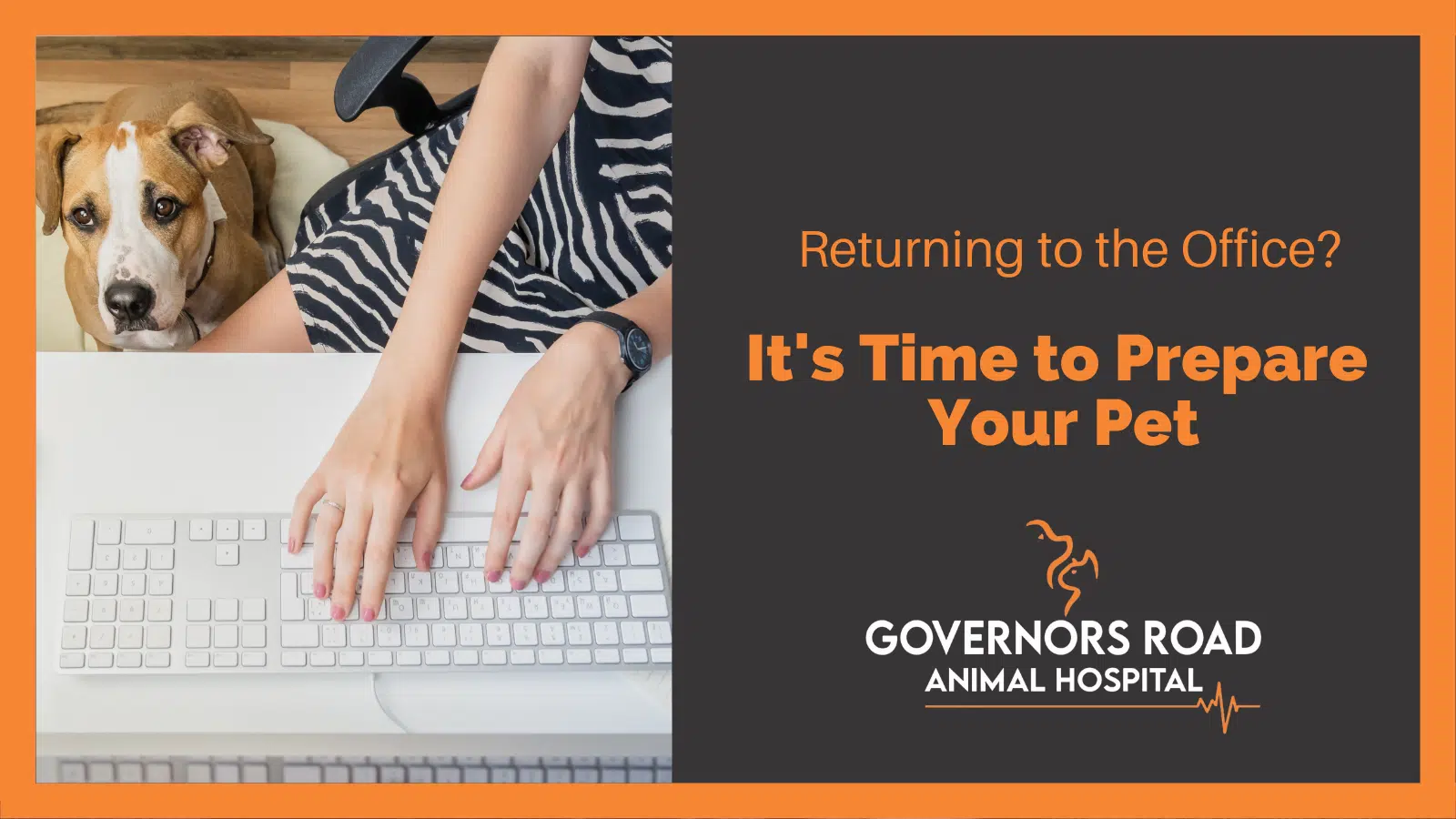
16 Mar Returning to the Office? It’s Time to Prepare Your Pet
Our pets have been our support system throughout the COVID-19 pandemic. When we were deprived of human contact, our furry friends gave us company and helped us destress. The lockdown routine allowed us to spend more time with our pets, strengthening the bond.
Many Canadians are now heading back to the office after an extended period of self-isolation. This can be a daunting experience for pets, so preparing them for the change is crucial so they’re not met by surprise (or shock).
As much as we’ve become attached to our pets, they have also grown fond of having us around 24/7. Leaving your pets back home while you’re away could cause them to break into separation anxiety.
While stress and anxiety are psychological issues, they can contribute to physical problems such as gastrointestinal, cardiac, and respiratory diseases. To avoid rushing your furry fellow to a vet clinic, you have to take a few measures.
Preparing Pets for Your Return to the Workplace
Here’s how you can prepare your pets to spend time independently as you return to your workplace.
Reward Good Behavior
One great way to reduce anxiety in your pets is by appreciating their good conduct. If they’re behaving well and adjusting to the new routine, give them a treat or extra attention. This will help reinforce good behaviour and make the transition smoother. This would motivate your furry companions to be on their own as they’d associate your absence with positive rewards.
Set up Scheduled Bonding
Once you’re gone all day, your pup or kitten would likely be craving playtime and cuddles. Granted, a post-pandemic routine won’t allow you to have as much interaction. But, you could make up for it by having quality interaction time.
What is your pet’s favourite activity? Is it taking a stroll on a beach? Cuddling up on a couch? Leverage what your pet loves to do once you return home and treat them with extra attention.
Also, encourage your family members to spend time playing with, walking, and cuddling with your pet. Doing so will help them feel more comfortable and loved and give you a much-needed relief during this chaotic time.
Give Them Alone Time
Your pets would panic when they don’t see you for 8-9 hours straight. While it is vital to help them adjust without you, it should be done gradually. If you know you’re going to be away from home for an extended time, it’s good to start training your pet to adjust to your absence. This will help them feel more comfortable when you’re not around and make the transition easier overall.
For example, you could first leave them alone for a couple of hours and monitor their behaviour. If everything goes fine, increase the duration in small steps. Also, leave them with food, water, and toys, so they’re occupied while you’re gone.
Consider Crate-Training
A gated space would serve as a safe space for your pets. If your pets stress out in your absence, a good crate is where they can settle down and gain some comfort.
To familiarize them with the place, give rewards and, more importantly, consider personalizing the settings. For instance, cats like quiet and dark spaces, so take care of this while preparing the crate and choosing a spot.
Increase Exercise
When your pets are low on energy, they’d rather spend their time dozing off than worrying about you. It is a good idea to increase the overall intensity and duration of exercise. It will help your pet burn some energy before you leave. This could mean taking your dog in the backyard and playing a game of fetch or pulling out a wand stick and stimulating your cat.
Look Out for Anxiety
Keep an eye out for signs of anxiety or stress. Here are some behavioural symptoms your pet might display when distressed.
- Aggression
- Excessive barking/whining/meowing
- Pacing / Restlessness
- Change in appetite or weight
- Change in mood
- Repetitive or compulsive behaviours
- Shaking / Trembling / Hiding
- Tail-tucking
- Excessive licking or chewing
Consider getting professional help from a veterinary clinic in Dundas if you notice these symptoms.
Final Thoughts
While you might get frustrated if your pet fails to adjust to your new routine, keep in mind that patience is the key here. Don’t punish your beloved fellow because that’ll only make them more stressed and aggressive.
With love, persistence, and support, we’re sure your furry friends will adapt to the post-pandemic routine without much trouble. It may take a few days, weeks, or even months for your pet to feel comfortable with the new routine.



Sorry, the comment form is closed at this time.